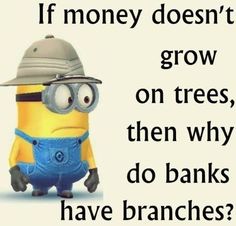
1/15: Of all the questions I’m being asked on recent diligence calls about our companies, the most common is “What are the skills/gaps of the Founder(s)?” Given COVID, this has become an important topic so I thought it would be worth sharing how I think about the issue. Unpacked: 

2/15: In every conversation I try to level-set the outsider and speak in “truisms” before diving into specifics. The first truism is that the skill set needed to run a high growth, disruptive start-up is multi-dimensional and that it’s about tradeoffs vs. insisting on completism.
3/15: We’d love if our Founders were world class on dimensions that include: Action orientation, ability to make decisions with limited/changing data, magnet for talent, ability to frame a business vision, and fundraising skills. These are just a few of the many important skills.
4/15: Add to this a desire for industry specific skills, technical chops, an eye for product, a track record of previous successes and deep financial acumen and you’ve defined the null set. Makes sourcing candidates easy because there aren’t any.
5/15: The second truism is that many Founders are highly functioning broken people. Spikes on some dimensions typically come with serious gaps elsewhere. It takes a special someone to become a Founder and rarely are they “perfectly balanced” people.
6/15: I try to humorously weave in that I’ve had a career that’s generally considered “successful” but that I’m an incredibly broken individual who somehow made it work. In case you’re curious, I wrote about how I’m FUBAR broken here: fintechjunkie.com/2018/07/29/bro…
7/15: The third truism is that the last thing we should do as investors is insist on some form of “try harder” from Founders regarding their flaws. Instead, we should focus on figuring out a Founder’s Superpower and surrounding them with people who can fill in their gaps.
8/15: If a Founder is brilliant on certain dimensions but falls short on others, the first thing that we as investors/advisors need to determine is whether or not the Founder has the ability to fix his/her shortcomings.
9/15: I’m of the belief that it’s OK for the answer to be no. It might be possible to help them improve a little, but there are times when there’s a true inability to change. And in these cases, the worst thing to do is to insist on change that won’t manifest no matter the effort
10/15: There’s no reason to declare the Founder incompetent and pass on investing in a business based on gaps that could be filled in by hiring complementary people. This could create a collective win where the complete picture is assembled using more than one puzzle piece.
11/15: I also try to make a point that as investors, it’s critical to realize that when we evaluate a Founder our bias is to try to rate them relative to the best Founder we’ve worked with in the past. This is natural but dangerous and does very little good.
12/15: My goal as an investor/advisor is to help a Founder become the best version of him/herself that they can be. But doing this requires putting in the time and effort needed to build a strong relationship grounded in trust.
13/15: It requires being empathic. And above all it requires believing that the effort will be worth it. The more a Founder is self-aware, the more they listen to feedback and the more they care about how their behaviors affect others the easier it is to believe.
14/15: As an aside but a truth. Me looking in the mirror early in my career: “Anyone know where I can get this thing fixed?”. My managers weren’t as empathetic as they could have been. I knew I was broken but I also knew I could add tons of value.
15/15: So, in these crazy times with very little face-to-face contact, it’s more important than ever to reference Founders. But it also means that we need to internalize that perfection isn’t the standard. If it is, someone should have sent me to the glue factory a long time ago.
• • •
Missing some Tweet in this thread? You can try to
force a refresh








